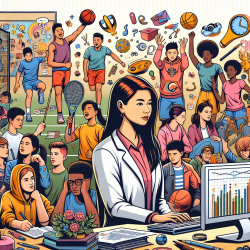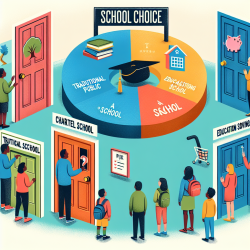Recent research has shed light on the critical role of extracurricular activities in the mental health of early adolescents. A study titled "After-School Extracurricular Activities Participation and Depressive Symptoms in Chinese Early Adolescents: Moderating Effect of Gender and Family Economic Status" (Pan et al., 2022) offers valuable insights that can be leveraged by practitioners to create better outcomes for children.
Key Findings from the Study
The study examined the relationships between various after-school activities and depressive symptoms among Chinese junior high school students. Here are some key findings:
- Homework and Tutoring: Time spent on homework and extracurricular tutoring was positively associated with depressive symptoms.
- Physical Exercise: Participation in physical exercise was negatively associated with depressive symptoms, highlighting its protective role.
- Online Activities: Time spent playing online games was positively related to depressive symptoms.
Moderating Factors: Gender and Family Economic Status
The study also identified that the relationship between extracurricular activities and depressive symptoms is moderated by gender and family economic status:
- Gender: Girls exhibited more depressive symptoms when participating in interest classes and online activities compared to boys.
- Family Economic Status: The impact of academic-related activities on depressive symptoms was more pronounced in students from moderate and wealthy families compared to those from economically disadvantaged backgrounds.
Implications for Practitioners
These findings offer several actionable insights for practitioners working with adolescents:
- Encourage Physical Activity: Given its protective role, promoting physical exercise should be a priority in after-school programs.
- Monitor Academic Pressure: Be cautious of excessive academic demands, especially for students from higher socioeconomic backgrounds, as they are more prone to depressive symptoms.
- Gender-Specific Interventions: Tailor interventions to address the unique needs of boys and girls, particularly in managing online activities and interest classes.
Encouraging Further Research
While this study provides valuable insights, it also highlights the need for further research to explore the long-term effects of extracurricular activities on adolescent mental health. Practitioners are encouraged to contribute to this growing body of knowledge by conducting longitudinal studies and sharing their findings.
To read the original research paper, please follow this link: After-School Extracurricular Activities Participation and Depressive Symptoms in Chinese Early Adolescents: Moderating Effect of Gender and Family Economic Status.










